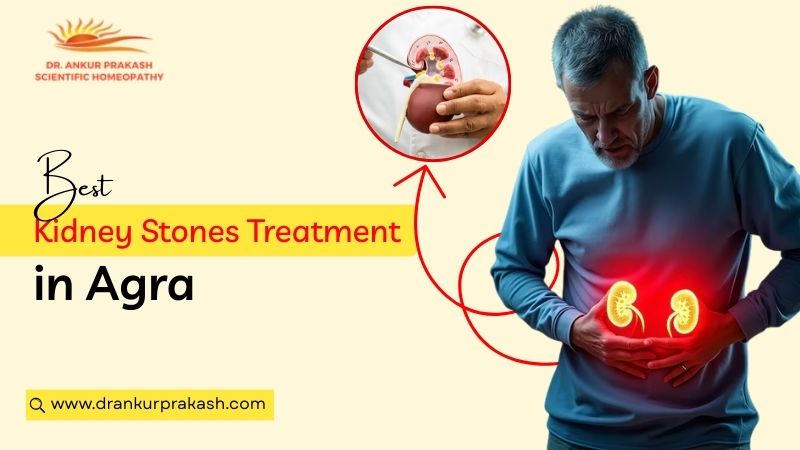What is Fatty Liver?
Fatty Liver, often referred to as hepatic steatosis, occurs when excess fat accumulates in the liver. This condition can impair liver function and lead to various health issues. Although Fatty Liver can be influenced by several factors, it generally results from lifestyle choices such as poor diet and lack of exercise. Managing Fatty Liver typically involves dietary adjustments, regular physical activity, and monitoring by healthcare professionals to prevent its progression and promote liver health.
Types of Fatty Liver
Fatty Liver, medically known as hepatic steatosis, manifests primarily in two types: Non-Alcoholic Fatty Liver Disease (NAFLD) and Alcoholic Fatty Liver Disease (AFLD). Each type has distinct causes and progression pathways, affecting liver health differently. Many patients seek fatty liver homeopathy as a safe and natural approach to support liver function and manage symptoms effectively.
1. Non-Alcoholic Fatty Liver Disease (NAFLD):
NAFLD is the most common type of Fatty Liver, occurring in individuals who consume little to no alcohol. This condition closely links to metabolic syndromes such as obesity, diabetes, and high cholesterol. NAFLD can progress through several stages, starting from simple fat accumulation in the liver (steatosis) to a more severe form called Non-Alcoholic Steatohepatitis (NASH), which involves inflammation and liver cell damage. If unchecked, NASH can lead to fibrosis or scarring, culminating in cirrhosis, a severe and irreversible condition.
2. Alcoholic Fatty Liver Disease (AFLD):
Excessive alcohol consumption causes AFLD. Alcohol damages liver cells, leading to inflammation and fat accumulation within the liver. This initial stage often reverses if you significantly reduce or eliminate alcohol consumption. However, persistent alcohol abuse can advance AFLD to alcoholic hepatitis and eventually to alcoholic cirrhosis, where extensive scarring critically impairs liver function.
Managing Fatty Liver involves lifestyle interventions such as diet changes, increased physical activity, and, in cases of AFLD, cessation of alcohol consumption. Medical treatment may include medications to manage symptoms and complications. In advanced cases, such as cirrhosis, more intensive treatments or even liver transplantation may be necessary.
Understanding the type of Fatty Liver is crucial for effective treatment and management. Early diagnosis and proactive health measures are essential to mitigate liver damage and enhance overall liver health.
What Are the Symptoms of Fatty Liver?
Symptoms of Fatty Liver often go unnoticed in the early stages as the condition may not show any clear signs. However, as the disease progresses, several symptoms may appear, including:
Fatigue and Weakness: Individuals feel a general sense of tiredness and a lack of energy.
Discomfort in the Upper Right Abdomen: A dull or aching pain may occur in the upper right side of the abdomen, where the liver is located.
Weight Loss: Unexplained weight loss may happen as the disease progresses.
Jaundice: Yellowing of the skin and eyes indicates liver dysfunction.
Swelling in the Abdomen and Legs: Fluid may accumulate in the abdomen (ascites) and legs (edema) as liver function declines.
Itchy Skin: Bile products deposited in the skin can cause itching.
Appetite Loss: Individuals may experience a decrease in appetite, contributing to weight loss.
Nausea or Vomiting: Digestive disturbances may occur as the liver struggles to process substances.
Mental Confusion: Advanced stages may lead to hepatic encephalopathy, causing confusion and difficulty thinking.
Dark Urine or Pale Stool: Changes in urine or stool color can indicate improper liver function.
Causes
Fatty Liver, or hepatic steatosis, can develop due to various factors, and understanding these causes is crucial for prevention and management. The causes can be broadly categorized based on the type of Fatty Liver: Non-Alcoholic Fatty Liver Disease (NAFLD) and Alcoholic Fatty Liver Disease (AFLD).
Causes of Non-Alcoholic Fatty Liver Disease (NAFLD):
Obesity: High body mass index (BMI) increases the risk of fat accumulation in the liver.
Insulin Resistance: Common in conditions like type 2 diabetes, insulin resistance leads to increased fat storage in liver cells.
High Blood Sugar: Hyperglycemia, indicative of prediabetes or diabetes, is a risk factor for NAFLD.
High Levels of Fats, particularly triglycerides, in the blood: These lipid abnormalities are often associated with metabolic syndrome.
Poor Diet: Diets high in refined sugars and saturated fats can contribute to liver fat accumulation.
Sedentary Lifestyle: Lack of physical activity can exacerbate obesity and metabolic syndrome, leading to NAFLD.
Genetic Predisposition: Some genetic mutations affect liver fat metabolism, increasing susceptibility to NAFLD.
Causes of Alcoholic Fatty Liver Disease (AFLD):
Excessive Alcohol Consumption: The primary cause of AFLD, where ethanol metabolism in the liver leads to fat deposition and liver damage.
Nutritional Deficiencies: Alcohol abuse often coincides with poor dietary choices, exacerbating liver damage.
Genetic Factors: Variations in genes that affect alcohol metabolism can influence susceptibility to AFLD.
Both types of Fatty Liver are influenced by overlapping factors such as genetics, diet, and lifestyle choices. However, the direct impact of alcohol is what distinguishes AFLD. Management typically involves addressing these underlying causes—through lifestyle changes in diet and exercise, managing body weight, controlling diabetes and cholesterol levels, and in the case of AFLD, reducing or eliminating alcohol intake.
Homeopathy Treatment for Fatty Liver
Homeopathic Medicine for Fatty Liver provides a holistic approach to treating the condition, focusing on stimulating the body’s natural healing processes. This method tailors remedies to individual symptoms and overall health profiles, potentially easing liver inflammation and improving liver function. Here are some commonly prescribed Homeopathy Medicines for Fatty Liver:
Homeopathic Medicines for Fatty Liver
Homeopathic Medicine for Fatty Liver provides a holistic approach to treating the condition, focusing on stimulating the body’s natural healing processes. This method tailors remedies to individual symptoms and overall health profiles, potentially easing liver inflammation and improving liver function. Here are some commonly prescribed Homeopathy Medicines for Fatty Liver:
Homeopathic Medicine for Fatty Liver provides a holistic approach to treating the condition, focusing on stimulating the body’s natural healing processes. This method tailors remedies to individual symptoms and overall health profiles, potentially easing liver inflammation and improving liver function. Here are some commonly prescribed Homeopathy Medicines for Fatty Liver:
Chelidonium Majus: Often recommended for individuals experiencing right-sided upper abdominal pain, jaundice, and general sluggishness. This remedy effectively addresses liver dysfunction accompanied by digestive disturbances, making it a reliable Homeopathy Medicine for Fatty Liver.
Nux Vomica: Suitable for those whose Fatty Liver may be linked to overindulgence in food, alcohol, or stress. This Homeopathy Medicine for Fatty Liver aids in digestive complaints and benefits sedentary individuals prone to irritability and aggression.
Phosphorus: Ideal for patients with additional complications such as diabetes or gastrointestinal issues, including bloating and gas after eating. This remedy is often chosen for those showing signs of fatigue and susceptibility to colds, marking its importance as a Homeopathy Medicine for Fatty Liver.
Calcarea Carb: Best suited for overweight patients who lead a sedentary lifestyle. This remedy supports those with a sluggish metabolism and addresses excess fat accumulation in the liver, along with sensitivity to cold.
Lycopodium:
Addresses liver disorders in individuals prone to bloating, especially after consuming sweets. This remedy is useful for those who experience discomfort on the right side of the body and frequent nighttime urination.
Carduus Marianus (Milk Thistle): Specifically used for liver health, this remedy helps manage symptoms of liver disease such as abdominal swelling, jaundice, and malaise.”
Disclaimer: These Homeopathy Medicines for Fatty Liver should be taken under the supervision of a qualified homeopathy Doctor to ensure the best outcomes tailored to each individual’s unique health profile.
In conclusion
Fatty Liver, or hepatic steatosis, is a significant health concern that requires attention and proactive management. Understanding the types and causes of Fatty Liver is crucial for effective treatment. Non-Alcoholic Fatty Liver Disease (NAFLD) and Alcoholic Fatty Liver Disease (AFLD) have distinct pathways and risk factors, but both can severely impact liver function if left unchecked.
Lifestyle changes, including a balanced diet, regular physical activity, and, in the case of AFLD, reducing or eliminating alcohol intake, are fundamental in managing Fatty Liver. Additionally, incorporating a holistic approach such as homeopathy can provide a supportive role in treatment. Consulting a Homeopathic doctor in Agra ensures personalized care, as homeopathy treatment for Fatty Liver focuses on stimulating the body’s natural healing processes, potentially reducing liver inflammation and improving liver function. Remedies like Chelidonium Majus are tailored to individual symptoms, addressing both physical discomfort and underlying health issues.








